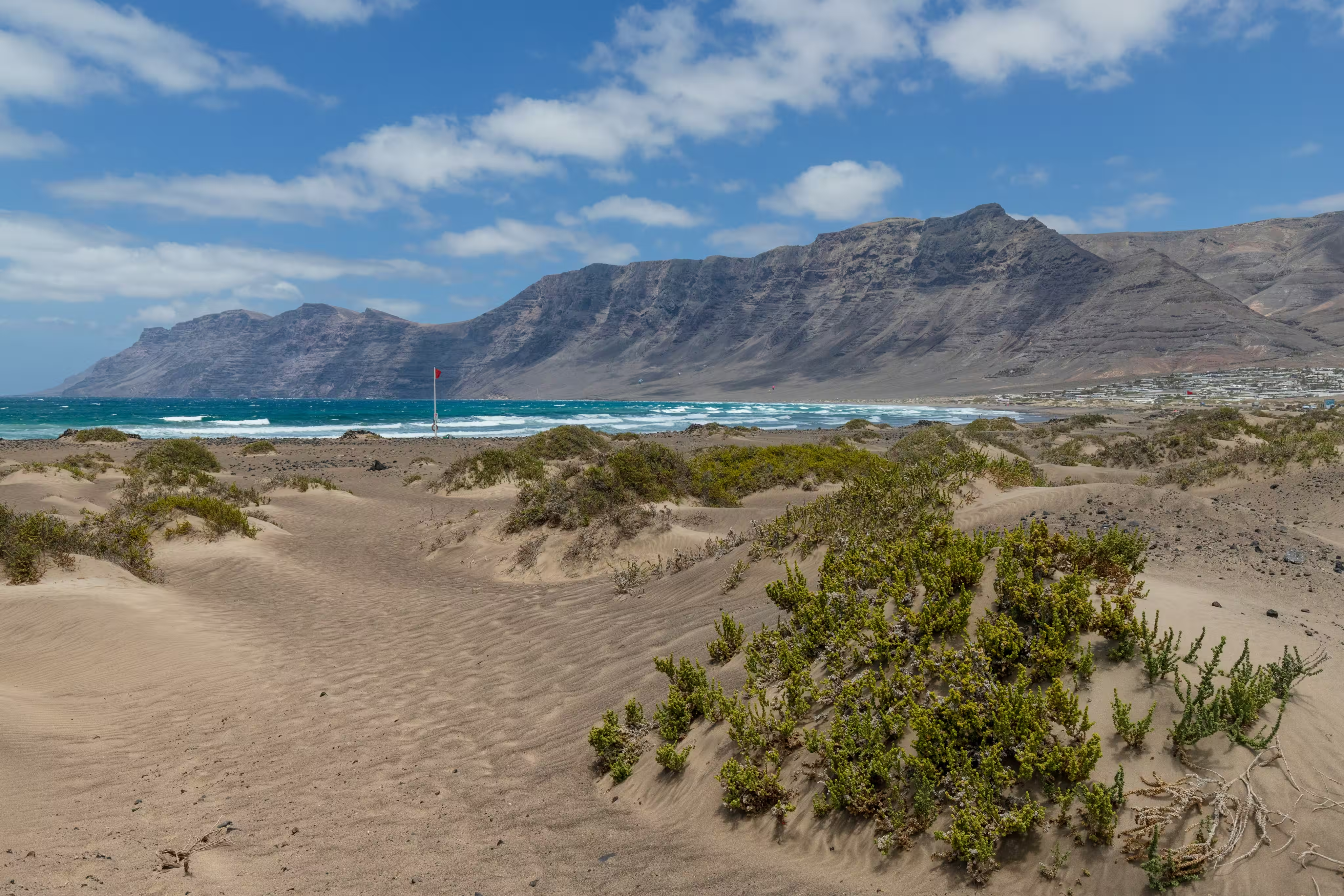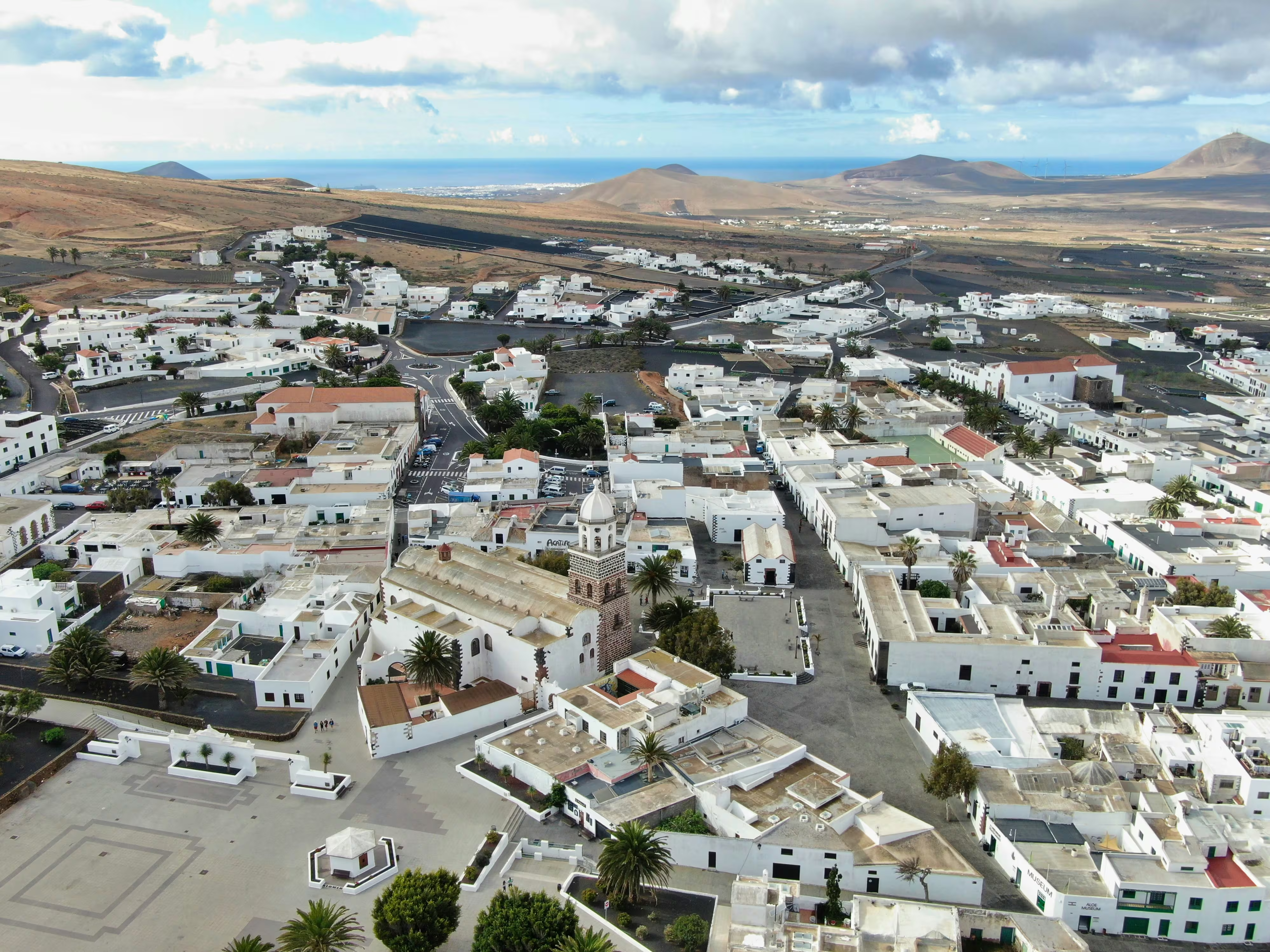History
Deep roots, living traditions.
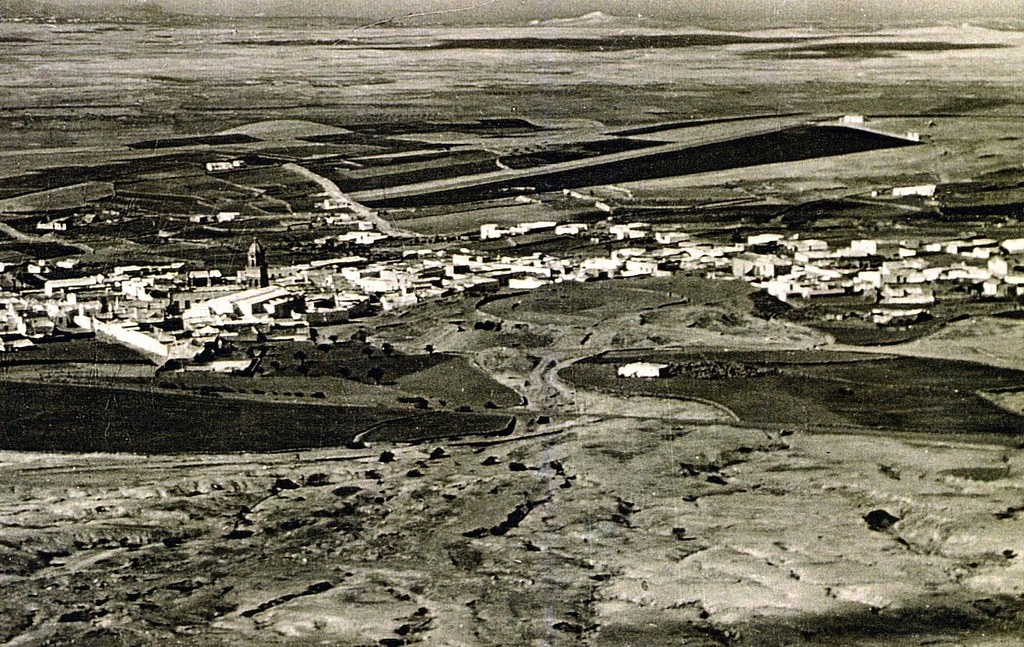
History, Tradition, and Charm in the Heart of Lanzarote
Discover Teguise, the municipality with the most tradition and history in Lanzarote, composed of charming villages and unique landscapes such as Costa Teguise, Famara and La Graciosa Island.
ORIGINS AND CONQUEST
FROM THE GREAT VILLAGE TO THE VILLA DE TEGUISE
Teguise's history dates back to pre-Hispanic times, when it was known as Acatife by the Majos, the first inhabitants of Lanzarote. In the 15th century, the Frenchman Jean de Bethencourt conquered the island and founded the Villa de Teguise in honor of the Guanche princess Teguise, daughter of King Guadarfía.
Throughout the 16th and 17th centuries, the villa became a prosperous economic center that, due to its wealth, suffered numerous pirate attacks. This turbulent history shaped Teguise's resilient and proud character, reflected in its architecture and culture.
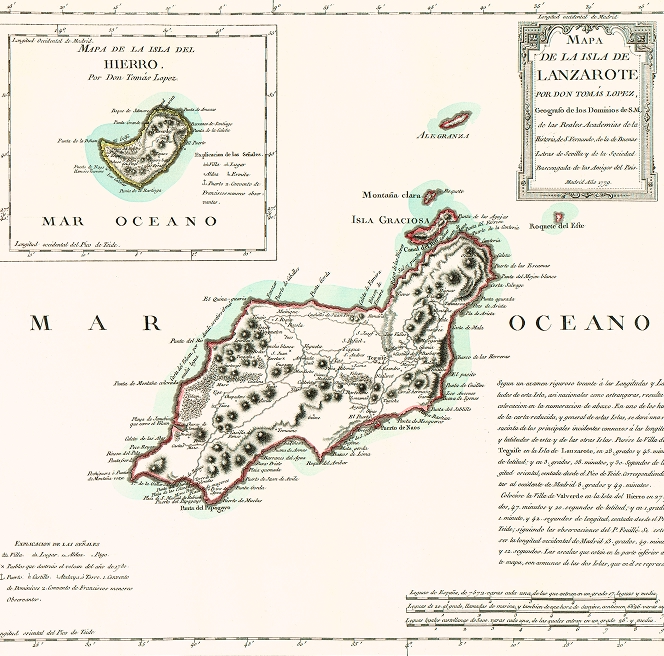
ORIGINS AND CONQUEST
FROM THE GREAT VILLAGE TO THE VILLA DE TEGUISE
Teguise's history dates back to pre-Hispanic times, when it was known as Acatife by the Majos, the first inhabitants of Lanzarote. In the 15th century, the Frenchman Jean de Bethencourt conquered the island and founded the Villa de Teguise in honor of the Guanche princess Teguise, daughter of King Guadarfía.
Throughout the 16th and 17th centuries, the villa became a prosperous economic center that, due to its wealth, suffered numerous pirate attacks. This turbulent history shaped Teguise's resilient and proud character, reflected in its architecture and culture.
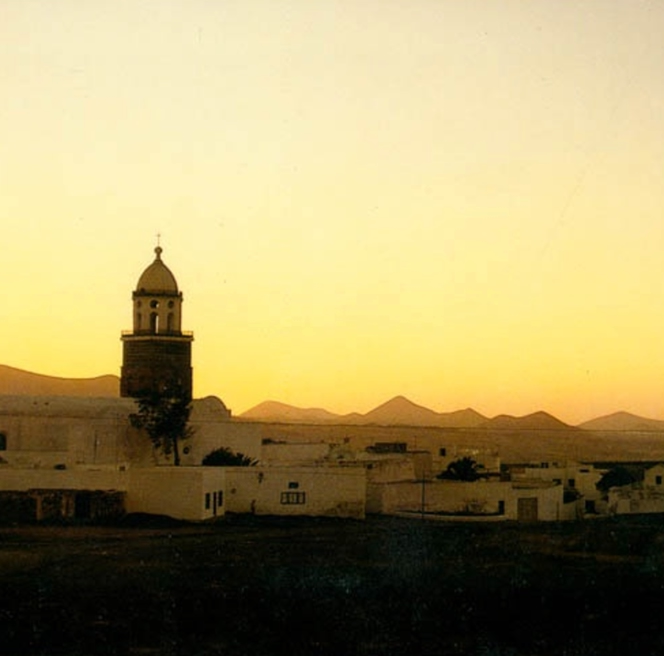
ORIGINS AND CONQUEST
FROM THE GREAT VILLAGE TO THE VILLA DE TEGUISE
Teguise's history dates back to pre-Hispanic times, when it was known as Acatife by the Majos, the first inhabitants of Lanzarote. In the 15th century, the Frenchman Jean de Bethencourt conquered the island and founded the Villa de Teguise in honor of the Guanche princess Teguise, daughter of King Guadarfía.
Throughout the 16th and 17th centuries, the villa became a prosperous economic center that, due to its wealth, suffered numerous pirate attacks. This turbulent history shaped Teguise's resilient and proud character, reflected in its architecture and culture.
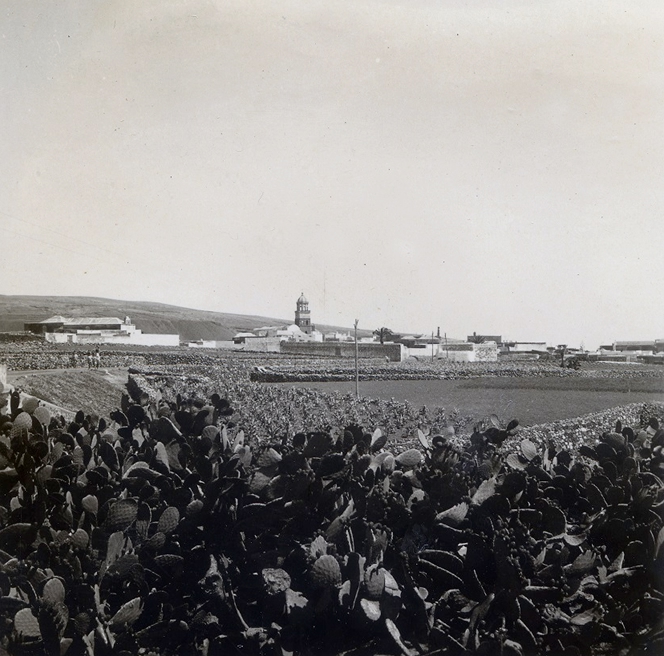
ORIGINS AND CONQUEST
FROM THE GREAT VILLAGE TO THE VILLA DE TEGUISE
Teguise's history dates back to pre-Hispanic times, when it was known as Acatife by the Majos, the first inhabitants of Lanzarote. In the 15th century, the Frenchman Jean de Bethencourt conquered the island and founded the Villa de Teguise in honor of the Guanche princess Teguise, daughter of King Guadarfía.
Throughout the 16th and 17th centuries, the villa became a prosperous economic center that, due to its wealth, suffered numerous pirate attacks. This turbulent history shaped Teguise's resilient and proud character, reflected in its architecture and culture.
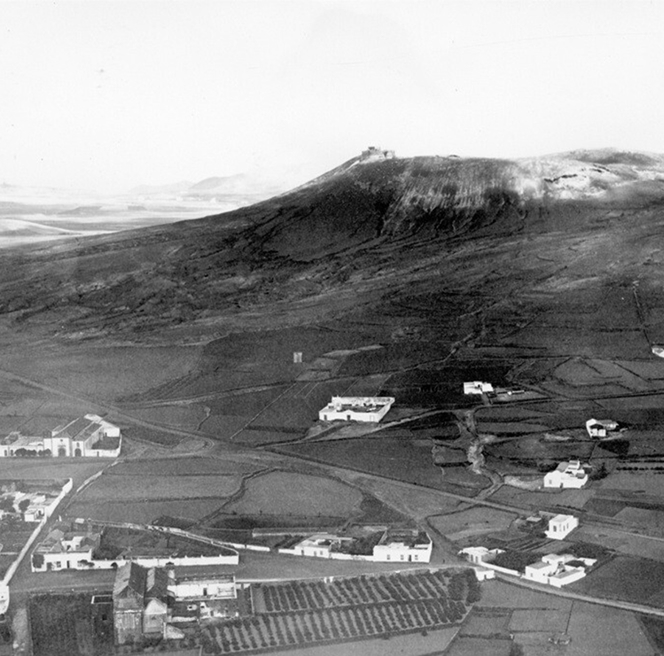
ORIGINS AND CONQUEST
FROM THE GREAT VILLAGE TO THE VILLA DE TEGUISE
Teguise's history dates back to pre-Hispanic times, when it was known as Acatife by the Majos, the first inhabitants of Lanzarote. In the 15th century, the Frenchman Jean de Bethencourt conquered the island and founded the Villa de Teguise in honor of the Guanche princess Teguise, daughter of King Guadarfía.
Throughout the 16th and 17th centuries, the villa became a prosperous economic center that, due to its wealth, suffered numerous pirate attacks. This turbulent history shaped Teguise's resilient and proud character, reflected in its architecture and culture.
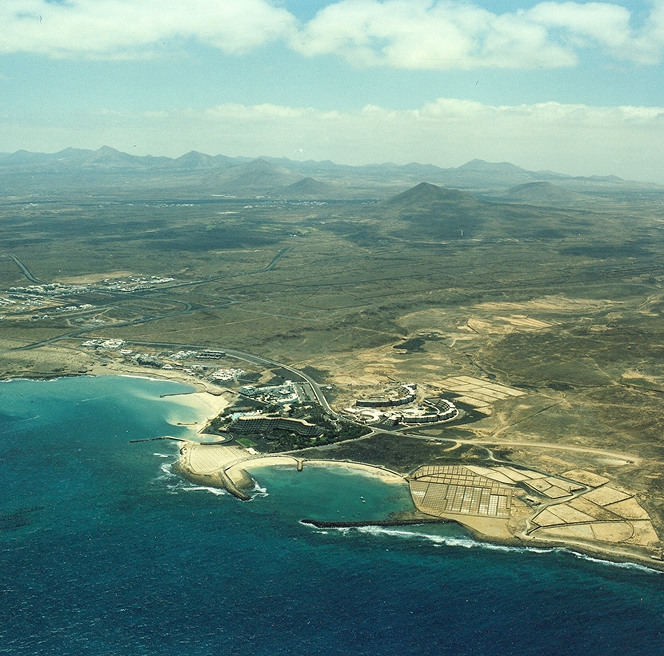
CRAFTSMANSHIP AND TRADITIONS
A LIVING HERITAGE
Teguise is a benchmark for Lanzarote craftsmanship, where centuries-old traditions remain alive.
At its famous market, local artisans exhibit unique pieces of pottery, goldsmithing, and textiles such as lace and embroidery. The figures of 'Los Novios de El Mojón' stand out, symbolizing ancient engagement rituals.
The Villa is also the birthplace of the timples, a small string instrument similar to the ukulele, which produces a cheerful sound characteristic of Canarian music.
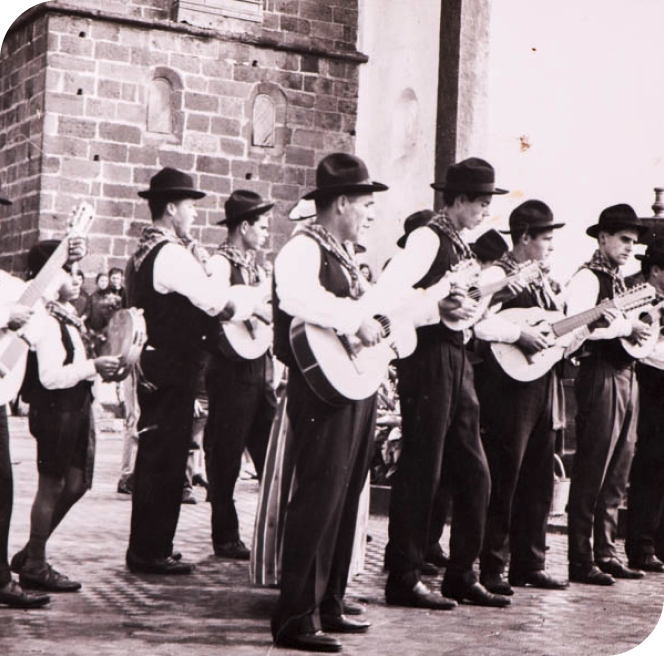
CRAFTSMANSHIP AND TRADITIONS
A LIVING HERITAGE
Teguise is a benchmark for Lanzarote craftsmanship, where centuries-old traditions remain alive.
At its famous market, local artisans exhibit unique pieces of pottery, goldsmithing, and textiles such as lace and embroidery. The figures of 'Los Novios de El Mojón' stand out, symbolizing ancient engagement rituals.
The Villa is also the birthplace of the timples, a small string instrument similar to the ukulele, which produces a cheerful sound characteristic of Canarian music.
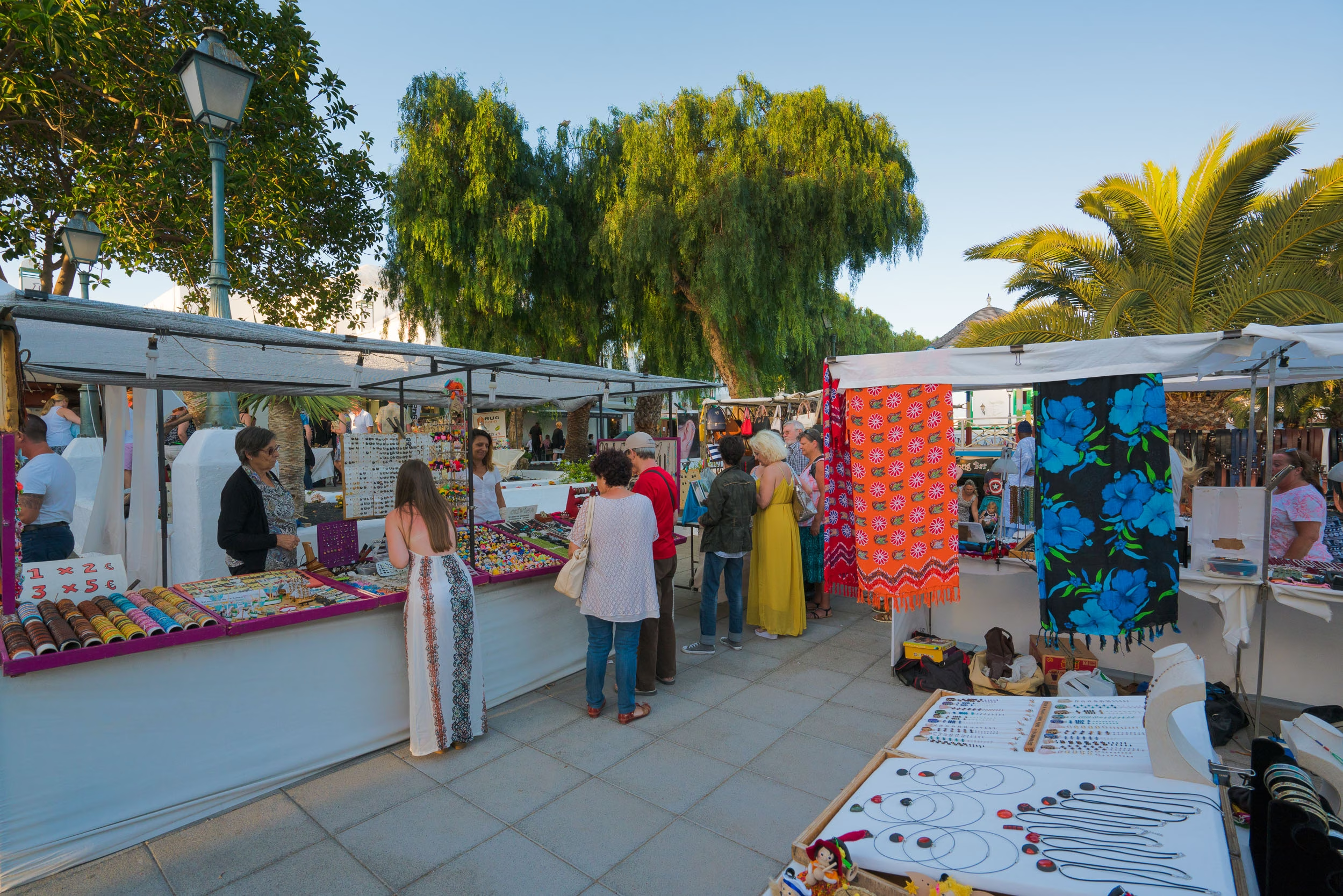
CRAFTSMANSHIP AND TRADITIONS
A LIVING HERITAGE
Teguise is a benchmark for Lanzarote craftsmanship, where centuries-old traditions remain alive.
At its famous market, local artisans exhibit unique pieces of pottery, goldsmithing, and textiles such as lace and embroidery. The figures of 'Los Novios de El Mojón' stand out, symbolizing ancient engagement rituals.
The Villa is also the birthplace of the timples, a small string instrument similar to the ukulele, which produces a cheerful sound characteristic of Canarian music.
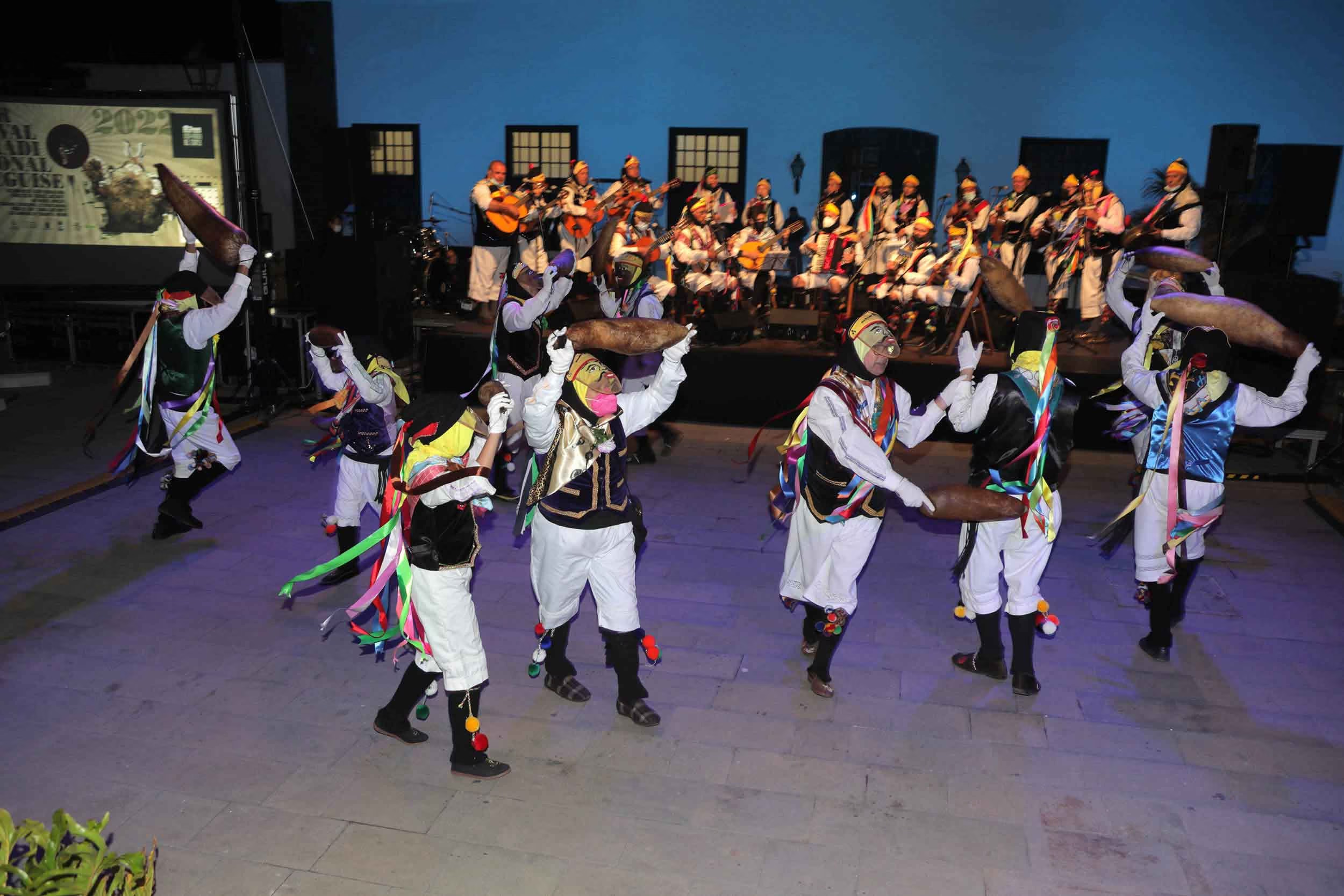
CRAFTSMANSHIP AND TRADITIONS
A LIVING HERITAGE
Teguise is a benchmark for Lanzarote craftsmanship, where centuries-old traditions remain alive.
At its famous market, local artisans exhibit unique pieces of pottery, goldsmithing, and textiles such as lace and embroidery. The figures of 'Los Novios de El Mojón' stand out, symbolizing ancient engagement rituals.
The Villa is also the birthplace of the timples, a small string instrument similar to the ukulele, which produces a cheerful sound characteristic of Canarian music.
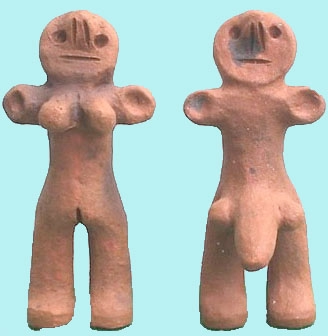
CRAFTSMANSHIP AND TRADITIONS
A LIVING HERITAGE
Teguise is a benchmark for Lanzarote craftsmanship, where centuries-old traditions remain alive.
At its famous market, local artisans exhibit unique pieces of pottery, goldsmithing, and textiles such as lace and embroidery. The figures of 'Los Novios de El Mojón' stand out, symbolizing ancient engagement rituals.
The Villa is also the birthplace of the timples, a small string instrument similar to the ukulele, which produces a cheerful sound characteristic of Canarian music.
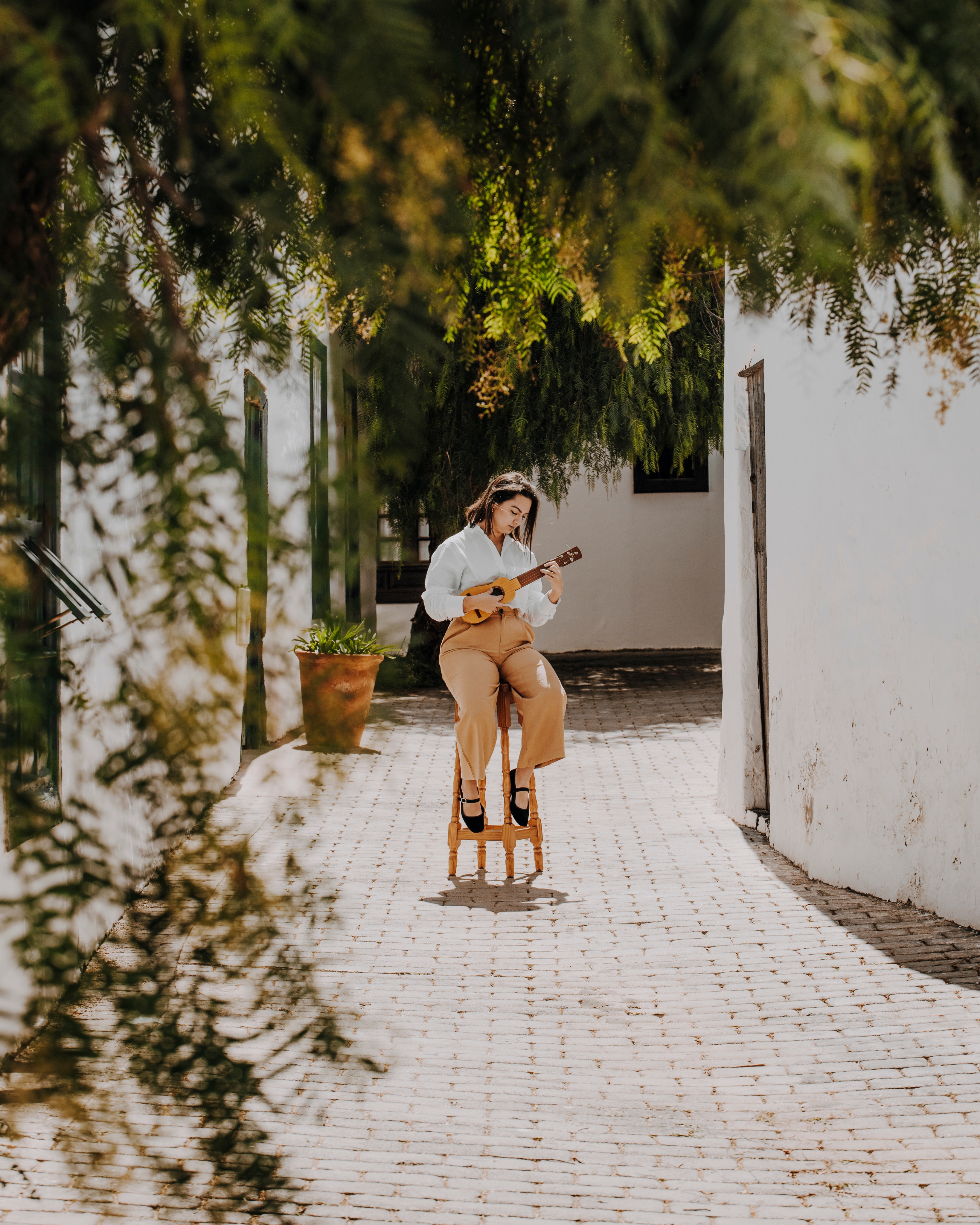
TRADITIONAL SPORTS
CULTURE IN MOTION
In Teguise, traditional sports are an expression of Lanzarote's cultural identity.
The Canarian wrestling, with its combination of strength and technique, is one of the most emblematic sports, practiced fervently throughout the island. Other traditional sports include stick fighting, a form of fencing dating back to the aborigines; and Canarian boules, similar to pétanque but with larger, metal-free balls.
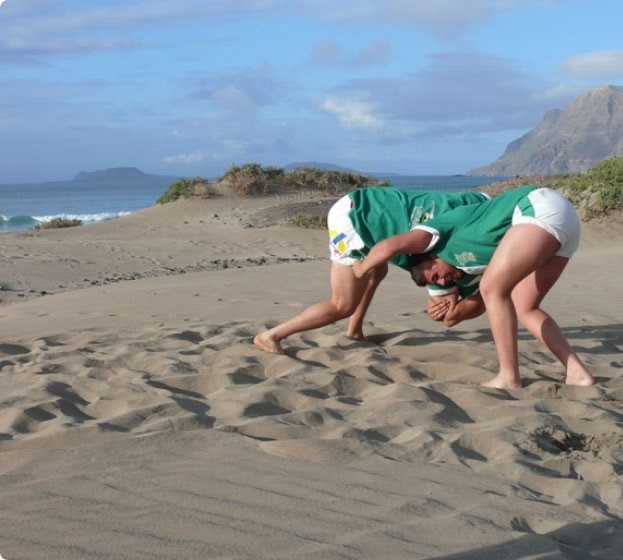
TRADITIONAL SPORTS
CULTURE IN MOTION
In Teguise, traditional sports are an expression of Lanzarote's cultural identity.
The Canarian wrestling, with its combination of strength and technique, is one of the most emblematic sports, practiced fervently throughout the island. Other traditional sports include stick fighting, a form of fencing dating back to the aborigines; and Canarian boules, similar to pétanque but with larger, metal-free balls.
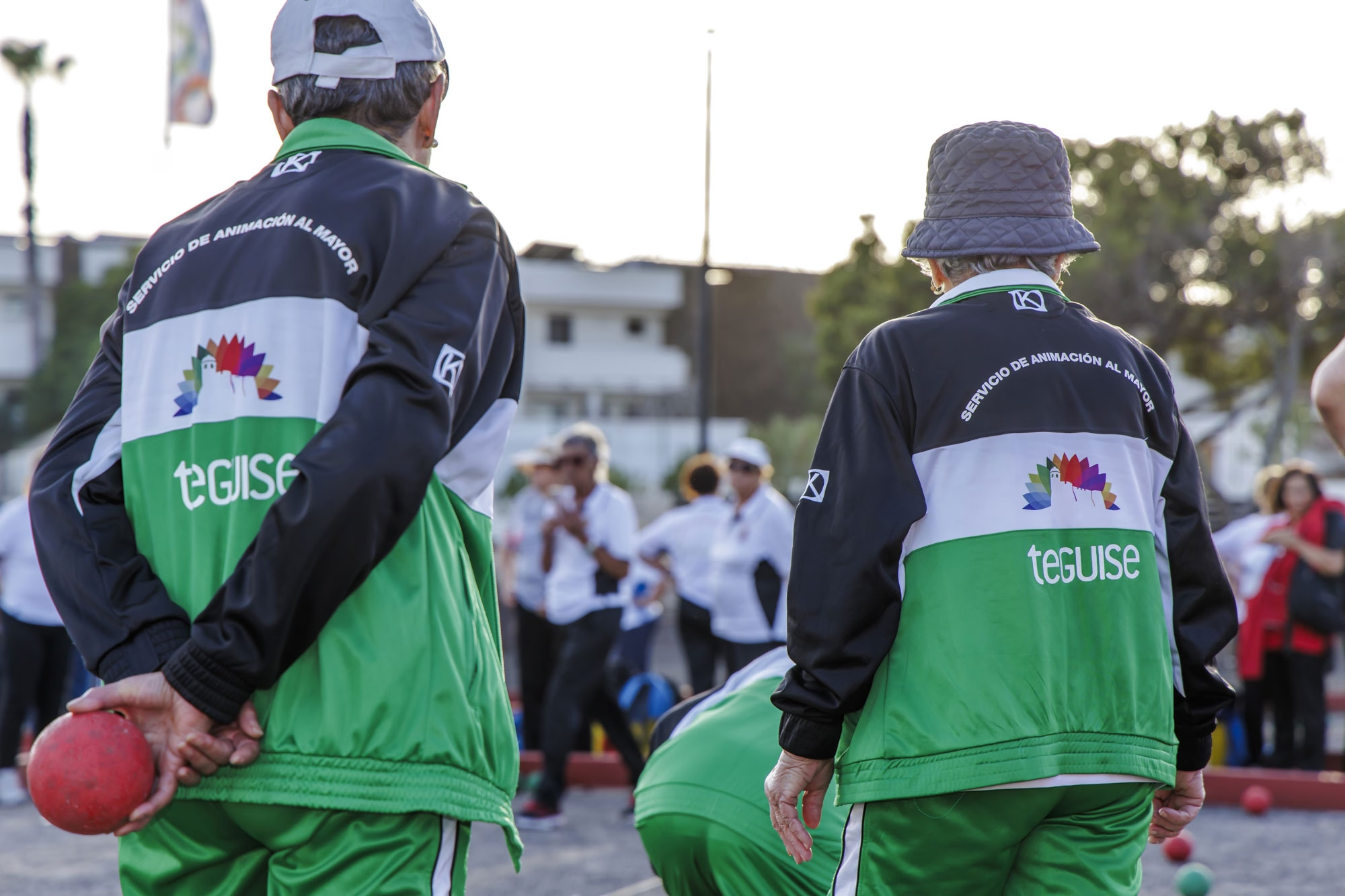
More about the Municipality of Teguise
Undoubtedly, Teguise is a municipality full of charm, history, and nature, inviting both those who wish to learn about the island's history and nature lovers to discover it.
A perfect place to get lost in its streets, enjoy its culture, and soak in its tranquility.
